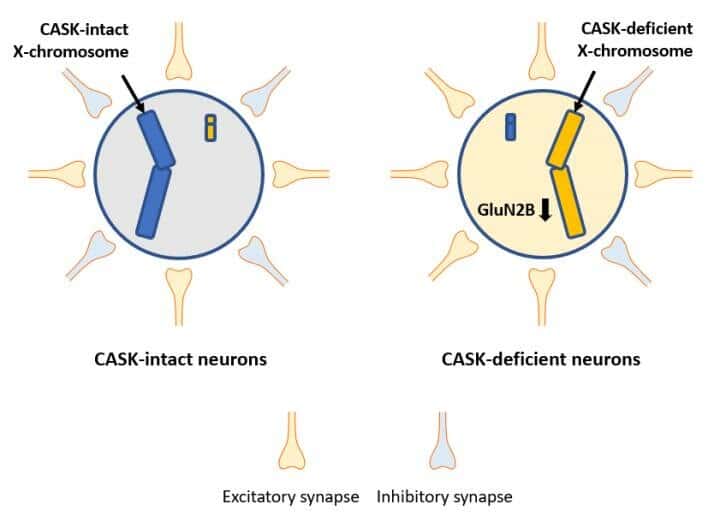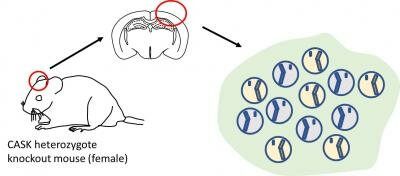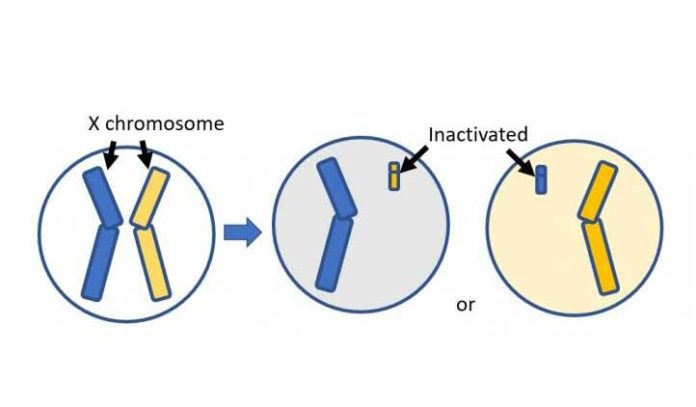Mental retardation and microcephaly with pontine and cerebellar hypoplasia (MICPCH) is an X-linked disorder affecting females and characterized by severe intellectual disability, microcephaly, and variable degrees of pontocerebellar hypoplasia. Affected individuals have very poor psychomotor development, often without independent ambulation or speech, and axial hypotonia with or without hypertonia. Some may have sensorineural hearing loss or eye anomalies.
Specialists have revealed for the first time the mechanism behind an uncommon cerebrum disorder called disproportionate pontine and cerebellar hypoplasia (MICPCH), which causes microcephaly. Data gathered from this creature study could likewise illuminate examination into other, progressively basic neurological infections, for example, mental impediment, epilepsy, and autism.
Neurons continually send messages to each other. There are two sorts of neurons in the brain: those that increase activity in different cells (excitatory neurons) and those that decline it (inhibitory neurons). The mechanism keeping the harmony among excitation and inhibition in the mind is fundamentally the same as that of a thermostat.
This mechanism is essential since irregular characteristics among excitation and restraint can cause serious disorders, for example, epilepsy and chemical imbalance. A standout amongst the most critical particles that keeps up the harmony among excitation and hindrance is a protein found inside the external film of neurons, called the calcium/calmodulin-subordinate serine protein kinase (CASK).

Changes in the gene that produces CASK accordingly lead to a few neurodevelopmental disorders, for example, mental impediment. An absence of the protein in the mind has been found to cause MICPCH disorder.
Corresponding author Katsuhiko Tabuchi, a professor in the Department of Molecular and Cellular Physiology at the Institute of Medicine, Academic Assembly at Shinshu University in Nagano, Japan said, “The aim of the study was to understand the pathophysiology of CASK-deficiency disorders in females, such as MICPCH syndrome, which are supposed to be influenced by X-chromosome inactivation.”
In any case, the subtleties of CASK-inadequacy outcomes have so far been difficult to think about, as mice that totally do not have the protein kick the bucket before they are created enough to ponder. So as to comprehend the instrument behind the CASK-deficiency, scientists used gene manipulation procedures that shut off the CASK quality through X chromosome inactivation in female mice without deadly results.

They found that neurons that need CASK have a disrupted excitation and inhibition balance. They additionally discovered this is a direct result of a diminishing in a convergence of a particular receptor on the membrane that gets signals from different neurons. At the point when the receptor concentration was expanded, the excitatory and inhibitory balance was re-established once more, driving the specialists to trust that the receptor assumes a vital job in the instrument in CASK-lacking neurons.
Professor Tabuchi said, “We hope to highlight the effect of two different types of neurons in one brain as well as the pathophysiology of CASK-deficiency disorders at neural circuit levels.”
The study was published in the January 4th, 2019 edition of the journal Molecular Psychiatry.
